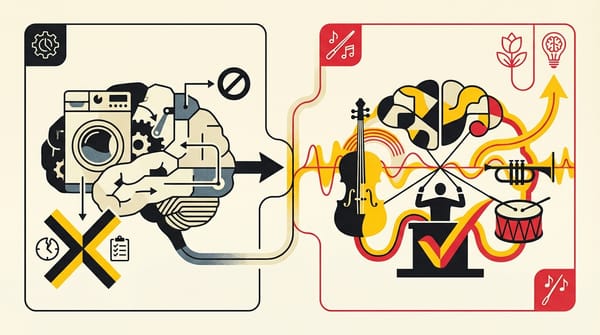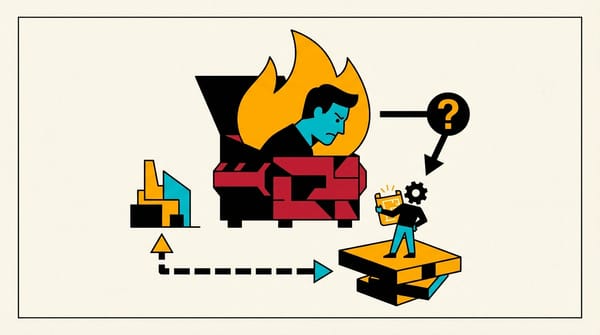How to apologize to improve relationships?
Learn how to apologize effectively to strengthen your relationships and foster genuine connections. Transform mistakes into opportunities for growth!

Podcast version of this article generated by Google NotebookLM, it may contain errors
Admit Mistakes
I have no difficulty in apologizing and admitting my mistakes. And in my small circle of friends, others also try to do the same or at least are learning to. But we all love irony and sarcasm, and sometimes we want to practice rhetoric, to apologize without really apologizing. A common mistake is an abstract or ironic apology, where it’s clear that you do not admit your guilt, and it makes things worse.
So, apologize in such a way that there are no questions left and your relationship with the other person only strengthens. Here is the necessary safety technique:
The most important task is to clearly articulate what exactly your mistake was and what you are apologizing for.
Accept Responsibility
The main problem with apologies is downplaying your fault, like saying the problem is not that serious. It turns out that you seem to be apologizing, but actually mean that there is nothing to apologize for. It’s normal to want to do this, and it’s normal to have this feeling, a bit prickly. But the good news is that this can be trained, gotten rid of, and you can win in all areas of life.
It was easy for me to learn this because I cannot stand making excuses. In my opinion, it always looks so pathetic. But if you need to say something or are required to give explanations, remember that an excuse is when we say that yes, we did something wrong, but not our fault, but due to some objective circumstances.
The point of apologies is that we take responsibility on ourselves, not shifting it onto others. At first glance, it may seem that you will lose from this, but in fact, your charisma will only win, and the overall impression of you will improve, even if you continue to make the same mistakes.
Moreover, apologies do not always imply that you did something wrong and may not sound like excuses. If you talk about yourself and state facts that you could not influence, you take a strong position in negotiations. And this is no longer an apology or an excuse, but strong communication skills.
Correct
I had problems accessing the system, and I could not complete the project on time. But I managed to prepare the main notes in a notebook. I have already contacted support and am working on solving the problem.
But if you are really at fault for something, you can suggest another person to somehow fix the situation, atone for the guilt, or restore justice.
Apologies mean we say, "I inconvenienced you, I acknowledge that." When we make excuses, we negate the meaning of the apology.
It is important to offer, not decide for the other person, what will be considered fair. Otherwise, the person may say, "Alright, I'll treat you to coffee, and we're even." But in fact, the other person may think that their mistake is much more serious than a coffee. Or you say that the next project is yours, but it is completely unnecessary for the other person. It turns out that you seemingly restored justice, but in reality, you did not.
Distinguish between guilt and unfounded apologies
One should apologize for something where you let someone down or caused them inconvenience, even though you shouldn't have.
For example, if you promised a client to do something and didn't do it, you likely caused inconvenience. It would be useful to apologize and offer a new plan of action: "Ivan, I cannot complete this task on time. I apologize, it was my oversight. Here’s what I propose…”
But if you didn’t promise anything, then there’s nothing to apologize for. And you shouldn’t. It detracts from your charisma or might even make you appear weak and insecure.
For example, if a client urgently wants to have a call with you to discuss a new project, but there were no prior agreements about calls. Then you don't need to apologize: "Jose, I can't have a call today or tomorrow. I can offer Friday only. I understand that's not soon, so if convenient, let's start with an email."
Conclusion
Apologies work not because of specific words, but because you acknowledge your mistake and want to fix it. What is valued is not the formality, but your attitude.
- When a person acknowledges their mistakes and wants to fix them, others can rely on them, be confident in them, and build long-term relationships with them.
- The opposite situation is when a person apologizes formally, not really acknowledging their guilt and not wanting to fix anything. In the eyes of others, this is an unreliable person.
- A clear distinction between guilt and unfounded apologies helps maintain confidence and authority. Apologize only when necessary to strengthen charisma and build reliable relationships based on respect and trust.
As always, I invite you to share your opinion in the comments
With love 😽 🤗 😘
K




